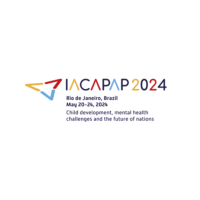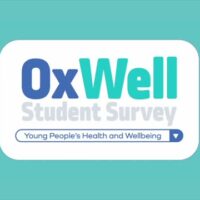Blog
-

An Overview of Psychological Interventions for Avoidant Restrictive Food Intake Disorder (ARFID)
Marking its tenth anniversary as a diagnosis, our scoping review summarised 50 studies reporting on psychological interventions and outcomes for Avoidant Restrictive Food Intake Disorder (ARFID). In the absence of clinical guidelines to support clinicians, our review highlights that a range of psychological interventions can be implemented to support children and young people with ARFID. Here, we summarise the existing literature and highlight areas for further research.
Read more -

Mental health and care-experienced young people: are our mental health support services appealing and accessible?
Children in care are much more likely to experience mental health problems than young people in the general population. Early life experiences, such as abuse, neglect, parental drug-use or violence likely play a major part in this. So too could the instability that is often inherent in the care system.
Read more -

ACAMH Awards 2023 Results
Congratulations to all winners and nominees of the ACAMH Awards 2023.
Read more -

Professor William Yule RIP
We are saddened to learn of the death of Professor William Yule, Emeritus Professor of Applied Child Psychology at King’s College London Institute of Psychiatry, Psychology and Neuroscience.
Read more -

IACAPAP Congress 2024 – Discount for ACAMH Members
IACAPAP Congress 2024 Rio is open for registration now! ACAMH Members are be eligible to enjoy the “IACAPAP Member Association” rate using a discount code.
Read more -

ACAMH Awards 2023 Nominees Shortlist
See who made the nominees shortlist for the 2023 ACAMH Awards.
Read more -

Insights from the OxWell Student Survey
Hosted by Clara Faria, ‘Insights from the OxWell Student Survey’ series is a new mini-in conversation series that will explore the OxWell study and the impact of its findings for parents, teachers, policymakers and mental health professionals.
Read more -

Moving Forward with ADHD (Attention-Deficit/Hyperactivity Disorder)
Celebrated every October, ADHD Awareness Month aims to educate the public about ADHD by disseminating information informed by evidence-based research. It provides an opportunity to correct misunderstandings, acknowledge lived experiences, and read the latest research from leading lights in the field.
This ADHD Awareness Month, we encourage you to explore the FREE learning opportunities available on our website, and to share with your networks.
Read more -

Congratulations and Thanks to our Top Reviewers
To celebrate Peer Review Week 2023 and show our gratitude for the ongoing support and service of our reviewers to the journals, and the wider scientific community, we want to extend a heartfelt thank you to all peer reviewers.
We are proud to present the list of top reviewers for the 2022 calendar year.
Read more -

Redistributing power in schools and how this can impact young people’s agency and identity
Recent Guardian articles have been reporting how this year’s GCSE exam results have been impacted by the crisis in young people’s mental health. There is increasing concern among school leaders about school absence and abnormal levels of anxiety. As I embark on the third blog related to my research, I explore how the research processes I developed, positively impacted the young people involved and acts as a counter to much of what young people see as being wrong with schools.
Read more
